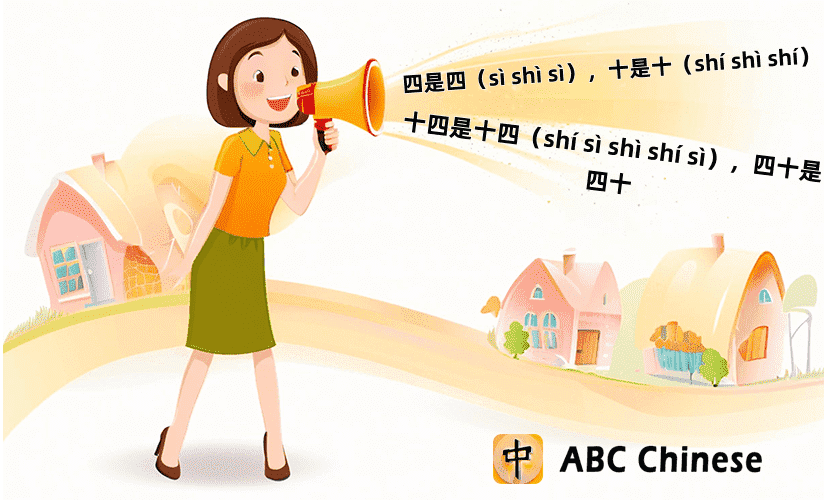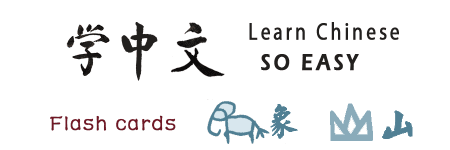Chinese Classic Tongue Twisters

I. The Charm and Significance of Tongue Twisters
Tongue twisters are highly distinctive language games among Chinese folk. They have unique charm and are of great significance in language training and cultural inheritance.
(i) A Magic Weapon for Language Training
Tongue twisters play a remarkable role in improving the accuracy of Mandarin pronunciation and exercising the coordination of lips and tongue. During the process of repeatedly reciting tongue twisters, people need to precisely control the movement of oral muscles to make each syllable pronounced clearly and accurately, which is very helpful for correcting pronunciation and improving language fluency. For example, some syllables with similar pronunciations frequently appear in tongue twisters, enabling learners to gradually master the pronunciation skills among them.
(ii) A Carrier of Cultural Inheritance
As one of the quintessences of Chinese language and culture, tongue twisters carry rich cultural connotations. They reflect the wisdom of the people and the interestingness of the language. Passed down from ancient times to the present, they are a brilliant pearl in the cultural treasure house of the Chinese nation, showing the unique rhythmic beauty and sense of rhythm of the Chinese language.
(iii) How to Listen to Pronunciation and Practice
The follow - reading module in the "ABChinese" APP has commonly - used Chinese tongue twisters. You can practice pronunciation and recitation by following the reading, and you can master more tongue twisters. When using this APP, you can start with simple tongue twisters, listen carefully to the pronunciation, and pay attention to the accurate pronunciation of the tone, initial consonant and final vowel of each character. Then slowly read aloud following it and gradually increase the speed. At the same time, you can listen to the standard pronunciation several times, compare it with your own pronunciation, find out the deficiencies and make improvements. If you are a foreigner who can handle tongue twisters, you can amaze Chinese people and surpass other Chinese - learning people. The practice of tongue twisters requires perseverance. Spend a certain amount of time each day following and practicing to continuously improve your language level. Through this way, you can not only master the unique language form of tongue twisters but also gain a deeper understanding of the extensive and profound Chinese language and culture.
II. Seven Most Classic Chinese Tongue Twisters
(一)喇嘛和哑巴(lǎ má hé yǎ bā)
English translation: The Lama and the mute.
“南边来了个喇嘛(nán biān lái le gè lǎ má),提拉着五斤鳎目(tí lā zhe wǔ jīn tǎ mù)。”
A lama came from the south, carrying five jin of sole fish.
“北边来了个哑巴(běi biān lái le gè yǎ bā),腰里别着个喇叭(yāo lǐ bié zhe gè lǎ bā)。”
A mute came from the north, with a trumpet tucked at his waist.
“南边提拉着鳎目的喇嘛要拿鳎目换北边别喇叭哑巴的喇叭(nán biān tí lā zhe tǎ mù de lǎ má yào ná tǎ mù huàn běi biān bié lǎ bā yǎ bā de lǎ bā), 哑巴不愿意拿喇叭换喇嘛的鳎目(yǎ bā bù yuàn yì ná lǎ bā huàn lǎ má de tǎ mù),喇嘛非要换别喇叭哑巴的喇叭(lǎ má fēi yào huàn bié lǎ bā yǎ bā de lǎ bā)。”
The lama carrying the sole fish in the south wanted to exchange the sole fish for the trumpet of the mute with a trumpet in the north. The mute was unwilling to exchange his trumpet for the lama's sole fish, but the lama insisted on exchanging for the mute's trumpet.
“喇嘛抡起鳎目抽了别喇叭哑巴一鳎目(lǎ má lūn qǐ tǎ mù chōu le bié lǎ bā yǎ bā yī tǎ mù),哑巴摘下喇叭打了提拉着鳎目的喇嘛一喇叭(yǎ bā zhāi xià lǎ bā dǎ le tí lā zhe tǎ mù de lǎ má yī lǎ bā)。”
The lama swung the sole fish and hit the mute with a sole fish. The mute took off the trumpet and hit the lama carrying the sole fish with a trumpet.
“也不知是提拉着鳎目的喇嘛抽了别喇叭哑巴一鳎目(yě bù zhī shì tí lā zhe tǎ mù de lǎ má chōu le bié lǎ bā yǎ bā yī tǎ mù),还是别喇叭哑巴打了提拉着鳎目的喇嘛一喇叭(hái shì bié lǎ bā yǎ bā dǎ le tí lā zhe tǎ mù de lǎ má yī lǎ bā)。”
It's not known whether the lama carrying the sole fish hit the mute with a sole fish or the mute hit the lama carrying the sole fish with a trumpet.
(二)贾家养虾(jiǎ jiā yǎng xiā)
English translation: The Jia family raises shrimps.
“贾家有女初出嫁(jiǎ jiā yǒu nǚ chū chū jià),嫁到夏家学养虾(jià dào xià jiā xué yǎng xiā),”
The Jia family had a daughter who just got married, and she went to the Xia family to learn to raise shrimps.
“喂养的对虾个头儿大(wèi yǎng de duì xiā gè tóu ér dà),卖到市场直加价(mài dào shì chǎng zhí jiā jià)。”
The prawns she raised were big in size, and the price kept increasing when sold in the market.
“贾家爹爹会养鸭(jiǎ jiā diē diē huì yǎng yā),鸭子虽肥伤庄稼(yā zi suī féi shāng zhuāng jia)。”
The father in the Jia family knew how to raise ducks. Although the ducks were fat, they damaged the crops.
“邻里吵架不融洽(lín lǐ chǎo jià bù róng qià),贾家也学养对虾(jiǎ jiā yě xué yǎng duì xiā)。”
The neighbors quarreled and were not on good terms, so the Jia family also learned to raise prawns.
“小虾卡住了鸭子牙(xiǎo xiā qiǎ zhù le yā zi yá),大鸭咬住了小虾夹(dà yā yǎo zhù le xiǎo xiā jiā)。”
The small shrimp got stuck in the duck's beak, and the big duck bit the small shrimp's pincers.
“夏家公公劝,贾家爹爹压(xià jiā gōng gōng quàn,jiǎ jiā diē diē yā),大鸭不怕吓(dà yā bù pà xià),小虾装得嗲(xiǎo xiā zhuāng de diǎ),夏家贾家没办法(xià jiā jiǎ jiā méi bàn fǎ)。”
The father - in - law of the Xia family persuaded, and the father of the Jia family tried to control the situation. The big duck was not afraid of being threatened, and the small shrimp pretended to be cute. The Xia family and the Jia family had no way to solve the problem.
(三)分不清是鸭还是霞(fēn bù qīng shì yā hái shì xiá)
English translation: Can't tell whether it's a duck or rosy clouds.
“天空飘着一片霞(tiān kōng piāo zhe yī piàn xiá),水上游来一群鸭(shuǐ shàng yóu lái yī qún yā)。”
There is a piece of rosy clouds floating in the sky, and a group of ducks are swimming on the water.
“霞是五彩霞(xiá shì wǔ cǎi xiá),鸭是麻花鸭(yā shì má huā yā)。”
The rosy clouds are colorful ones, and the ducks are the ones with a pattern like twisted dough - sticks.
“麻花鸭游进五彩霞(má huā yā yóu jìn wǔ cǎi xiá),五彩霞网住麻花鸭(wǔ cǎi xiá wǎng zhù má huā yā)。”
The twisted - dough - stick - like ducks swam into the colorful rosy clouds, and the colorful rosy clouds trapped the twisted - dough - stick - like ducks.
“乐坏了鸭(lè huài le yā),拍碎了霞(pāi suì le xiá),分不清是鸭还是霞(fēn bù qīng shì yā hái shì xiá)。”
The ducks were so happy that they broke the rosy clouds, and it became impossible to tell whether it was the ducks or the rosy clouds.
(四)四和十(sì hé shí)
English translation: Four and ten.
“四是四(sì shì sì),十是十(shí shì shí),十四是十四(shí sì shì shí sì),四十是四十(sì shí shì sì shí)。”
Four is four, ten is ten, fourteen is fourteen, and forty is forty.
“莫把四字说成十(mò bǎ sì zì shuō chéng shí),休将十字说成四(xiū jiāng shí zì shuō chéng sì)。”
Don't say "four" as "ten", and don't say "ten" as "four".
“若要分清四十和十四(ruò yào fēn qīng sì shí hé shí sì),经常练说十和四(jīng cháng liàn shuō shí hé sì)。”
If you want to distinguish forty and fourteen clearly, practice saying ten and four frequently.
(五)六十六头牛(liù shí liù tóu niú)
English translation: Sixty - six cows.
“六十六岁的陆老头(liù shí liù suì de lù lǎo tóu),盖了六十六间楼(gài le liù shí liù jiān lóu),”
The sixty - six - year - old Old Lu built sixty - six houses.
“买了六十六篓油(mǎi le liù shí liù lǒu yóu),养了六十六头牛(yǎng le liù shí liù tóu niú),栽了六十六棵垂杨柳(zāi le liù shí liù kē chuí yáng liǔ)。”
He bought sixty - six baskets of oil, raised sixty - six cows, and planted sixty - six weeping willows.
“六十六篓油(liù shí liù lǒu yóu),堆在六十六间楼(duī zài liù shí liù jiān lóu);六十六头牛(liù shí liù tóu niú),扣在六十六棵垂杨柳(kòu zài liù shí liù kē chuí yáng liǔ)。”
The sixty - six baskets of oil were piled in the sixty - six houses; the sixty - six cows were tied to the sixty - six weeping willows.
“忽然一阵狂风起(hū rán yī zhèn kuáng fēng qǐ),吹倒了六十六间楼(chuī dǎo le liù shí liù jiān lóu), 翻倒了六十六篓油(fān dǎo le liù shí liù lǒu yóu),折断了六十六棵垂杨柳(zhé duàn le liù shí liù kē chuí yáng liǔ),砸死了六十六头牛(zá sǐ le liù shí liù tóu niú),急煞了六十六岁的陆老头(jí shà le liù shí liù suì de lù lǎo tóu)。”
Suddenly, a violent wind blew up. It blew down the sixty - six houses, overturned the sixty - six baskets of oil, broke the sixty - six weeping willows, killed the sixty - six cows, and worried the sixty - six - year - old Old Lu very much.
(六)枪和糠(qiāng hé kāng)
English translation: Spear and chaff.
“墙上一个窗(qiáng shàng yī gè chuāng),窗上一支枪(chuāng shàng yī zhī qiāng),窗下一箩糠(chuāng xià yī luó kāng)。”
There is a window on the wall. There is a spear on the window. There is a basket of chaff under the window.
“枪落进了糠(qiāng luò jìn le kāng),糠埋住了枪(kāng mái zhù le qiāng)。”
The spear fell into the chaff, and the chaff buried the spear.
“窗要糠让枪(chuāng yào kāng ràng qiāng),糠要枪上墙(kāng yào qiāng shàng qiáng),墙要枪上窗(qiáng yào qiāng shàng chuāng)。”
The window wants the chaff to make way for the spear. The chaff wants the spear to go back on the wall. The wall wants the spear to be on the window.
“互相不退让(hù xiāng bù tuì ràng),糠赶不走枪(kāng gǎn bù zǒu qiāng),枪也上不了窗(qiāng yě shàng bù le chuāng)和墙(hé qiáng)。”
They don't give in to each other. The chaff can't drive the spear away, and the spear can't get back on the window or the wall either.
(七)白庙和白猫(bái miào hé bái māo)
English translation: White temple and white cat.
“山上有座白庙(shān shàng yǒu zuò bái miào),白庙里有只白猫(bái miào lǐ yǒu zhī bái māo)。”
There is a white temple on the mountain, and there is a white cat in the white temple.
“白庙外蹲着一只白猫(bái miào wài dūn zhe yī zhī bái māo),白庙里的白猫瞪着白庙外的白猫(bái miào lǐ de bái māo dèng zhe bái miào wài de bái māo),白庙外的白猫也瞪着白庙里的白猫(bái miào wài de bái māo yě dèng zhe bái miào lǐ de bái māo),”
There is a white cat squatting outside the white temple. The white cat inside the white temple is staring at the white cat outside the white temple, and the white cat outside the white temple is also staring at the white cat inside the white temple.
“白庙外的白猫想进白庙捉这只白猫(bái miào wài de bái māo xiǎng jìn bái miào zhuō zhè zhī bái māo),白庙里的白猫不让白庙外的白猫进白庙捉它(bái miào lǐ de bái māo bù ràng bái miào wài de bái māo jìn bái miào zhuō tā)。”
The white cat outside the white temple wants to enter the white temple to catch the white cat inside. The white cat inside the white temple doesn't allow the white cat outside the white temple to enter the white temple to catch it.



